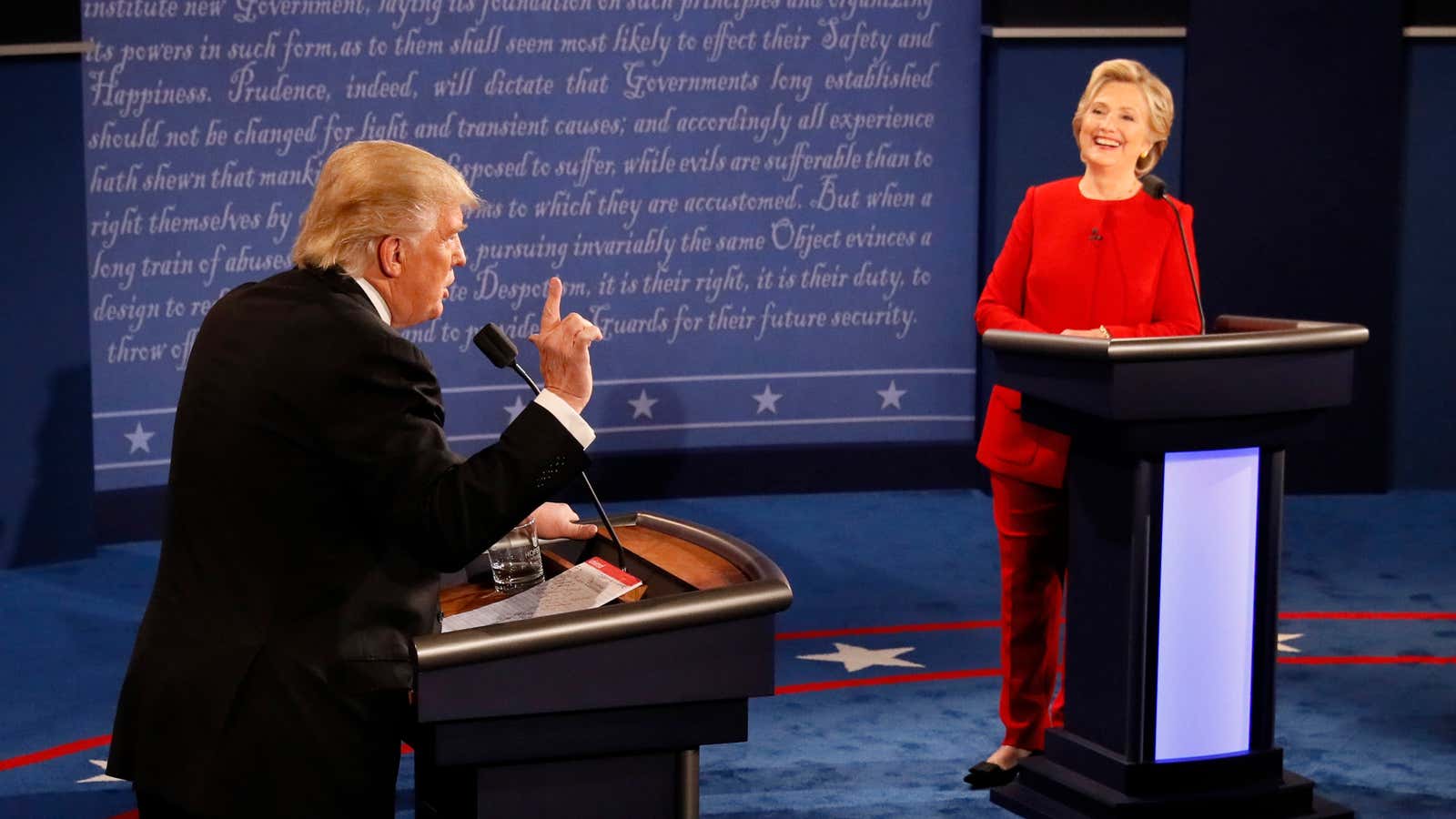America’s inner-city minorities are “living in hell,” Donald Trump said in his first debate against Democratic presidential nominee Hillary Clinton.
“We have a situation where we have our inner cities, African-Americans, Hispanics, are living in hell, because it’s so dangerous,” he said. You walk down the street, you get shot. In Chicago, they’ve had thousands of shootings, thousands, since January 1st. Thousands of shootings. And I say, where is this? Is this a war-torn country? What are we doing? And we have to stop the violence, we have to bring back law and order, in a place like Chicago, where thousands of people have been killed. Thousands, over the last number of years.”
This was a double-down on previous pleas to the African-American community. “What do you have to lose?” Trump asked a gathering of black pastors in Cleveland, Ohio in September. It’s a line of thinking that offers little in the way of solutions—aside from a national stop-and-frisk program, which isn’t likely to gain the candidate many new supporters in minority communities—focusing mainly on the problems faced by poor Americans of color.
And it stands in stark contrast to the messaging delivered by Clinton. “Well, I’ve heard Donald say this at his rallies, and it’s really unfortunate that he paints such a dire negative picture of black communities in our country,” she said during Tuesday’s debate, building on months of campaign rhetoric that has toted the successes of the country’s first African-American presidency. “The vibrancy of the black church, the black businesses that employ so many people, the opportunities that so many families are working to provide for their kids. There’s a lot that we should be proud of and we should be supporting and lifting up.”
